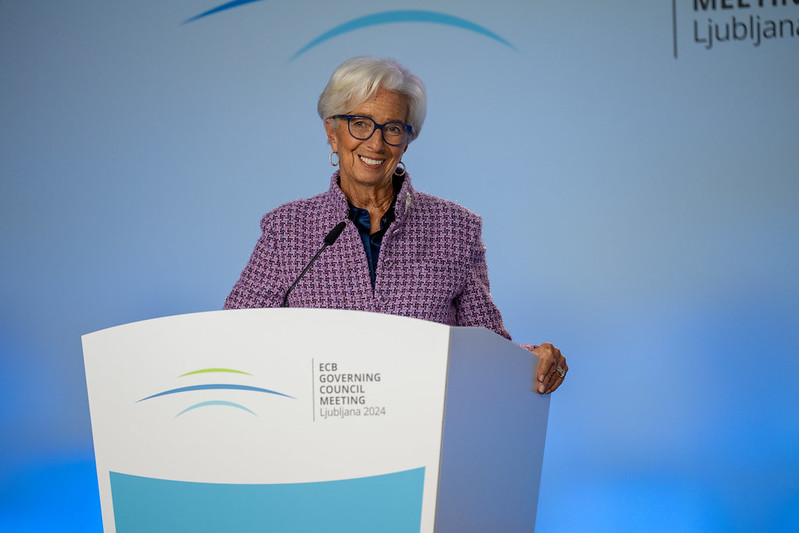ECB’s Lagarde Urges Addressing Obstacles to Achieving Capital Markets Union
22 November 2024

By David Barwick – FRANKFURT (Econostream) - European Central Bank President Christine Lagarde on Friday said that the fragmentation of capital markets in Europe called for achieving Capital Markets Union (CMU) and proposed solutions to the various factors hindering progress toward this goal.
In a speech at the European Banking Congress, Lagarde highlighted Europe’s ‘declining innovation position’ and called the technology gap with the US ‘now unmistakeable.’ This, she said, coincided with ‘growing threats to free trade’ to which the EU was particularly susceptible.
‘CMU lies at the centre of all these challenges’, she said. Achieving CMU however suffers from the ‘core problem’ that savings are prevented from entering capital markets in adequate amounts, don’t flow freely across Europe even when in capital markets, and ultimately fail to find their way to finance innovation, she said.
The failure of sufficient savings to enter capital markets requires ‘accessible, transparent and affordable’ investment instruments, she said.
‘In my view, a “European savings standard” – a standardised, EU-wide set of savings products – is the best way to achieve these goals’, she said. Ideally, tax incentives would also be harmonised, she said.
As for the fragmentation that hampers the free flow of savings across Europe, the principal problem was the divergence of legal frameworks and vested interests’ opposition to harmonisation, she said.
Lagarde suggested as a potential solution a two-tier approach similar to that in the areas of competition and banking supervision. Under such an approach, relevant entities would come under EU jurisdiction, but be subject to a single European legal system.
‘Another option would be to use “28th regimes”, which would enable us to carve out a special legal framework in areas where progress has stalled’, she said. ‘We would then have a separate EU legal regime that firms can opt into sitting alongside the various national regimes.’
A mix of the two options would probably make the most sense, she said.
With respect to ensuring that savings encounter innovation to fund, entrepreneurs faced too many obstacles, also of bureaucratic nature, for there to exist high-growth opportunities, she said.
In this regard, the Letta and Draghi reports contained essential prescriptions that would enable venture capitalists to find more appealing investments, she said.
In addition to such a demand-side solution, the supply side also required attention, she said.
‘First, given the natural alignment of investment horizons, our regulatory regime should allow long-term investors to contribute more to long-term growth’, she said.
‘Second, we should fully harness the potential of our public development banks, especially the European Investment Bank (EIB), to pool risks and crowd in private capital’, Lagarde continued.
And finally, the question of how to promote innovation via debt, not just equity, also needed answering, she urged.
